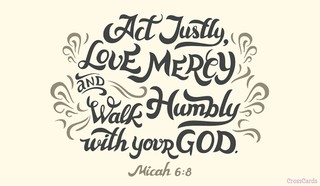
- Recent Translations
- All Translations
Michoh 6:4
Share
Settings
Images for Michoh 6:4

Michoh 6:4 Meaning and Commentary
For I brought thee up out of the land of Egypt
Instead of doing them any wrong, he had done them much good; of which this is one instance, and he was able to produce more: this a notorious, plain, and full proof of his goodness to them, which could not be denied. It may be rendered, as it is by some, "surely I brought thee up" F19 this is a certain thing, well known, and cannot be disproved; it must be allowed to be a great favour and kindness to be brought up out of a superstitious, idolatrous, Heathenish people, enemies to God and true religion, and who had used them in a barbarous and cruel manner: and redeemed thee out of the house of servants;
or, "out of the house of bondage"; as the same words are rendered, ( Exodus 20:2 ) ; that is, out of hard service, in which their lives were made bitter; out of cruel bondage and slavery; which made them cry to the Lord for help and deliverance, and he heard them, and sent them a deliverer; by whose hand he redeemed them from this base and low estate in which they were, and for which they ought ever to have been thankful, and to have shown their gratitude by their cheerful and constant obedience. Some take "the house of servants" to be descriptive, not of the state of the children of Israel in Egypt, but of the character of the Egyptians themselves; who, being the posterity of Ham, were inheritors of his curse, that he should be a servant of servants; and so it is an aggravation of the blessing, that Israel were redeemed from being servants to the servants of servants. This sense is mentioned by Kimchi and Abarbinel: and I sent before thee Moses, Aaron, and Miriam;
not to bring them the news of their deliverance out of Egypt, before they came out of it, as Kimchi; but to be their guides to conduct and direct them in all matters, civil and religious. Moses was their lawgiver, leader, and commander; Aaron was their priest to offer sacrifice for them, and to intercede on their behalf; and Miriam was a prophetess; and they were all very useful and beneficial to them; and a very great blessing it is to a people to have a good constitution, civil and ecclesiastic, and to have good magistrates, and good ministers of the word. The Targum is,
``I sent before thee three prophets, Moses to teach the tradition of the judgments, Aaron to make atonement for the people, and Miriam to instruct the women.''
F19 (yk) "certe", Calvin, Piscator, Tarnovius; so some in Vatablus.